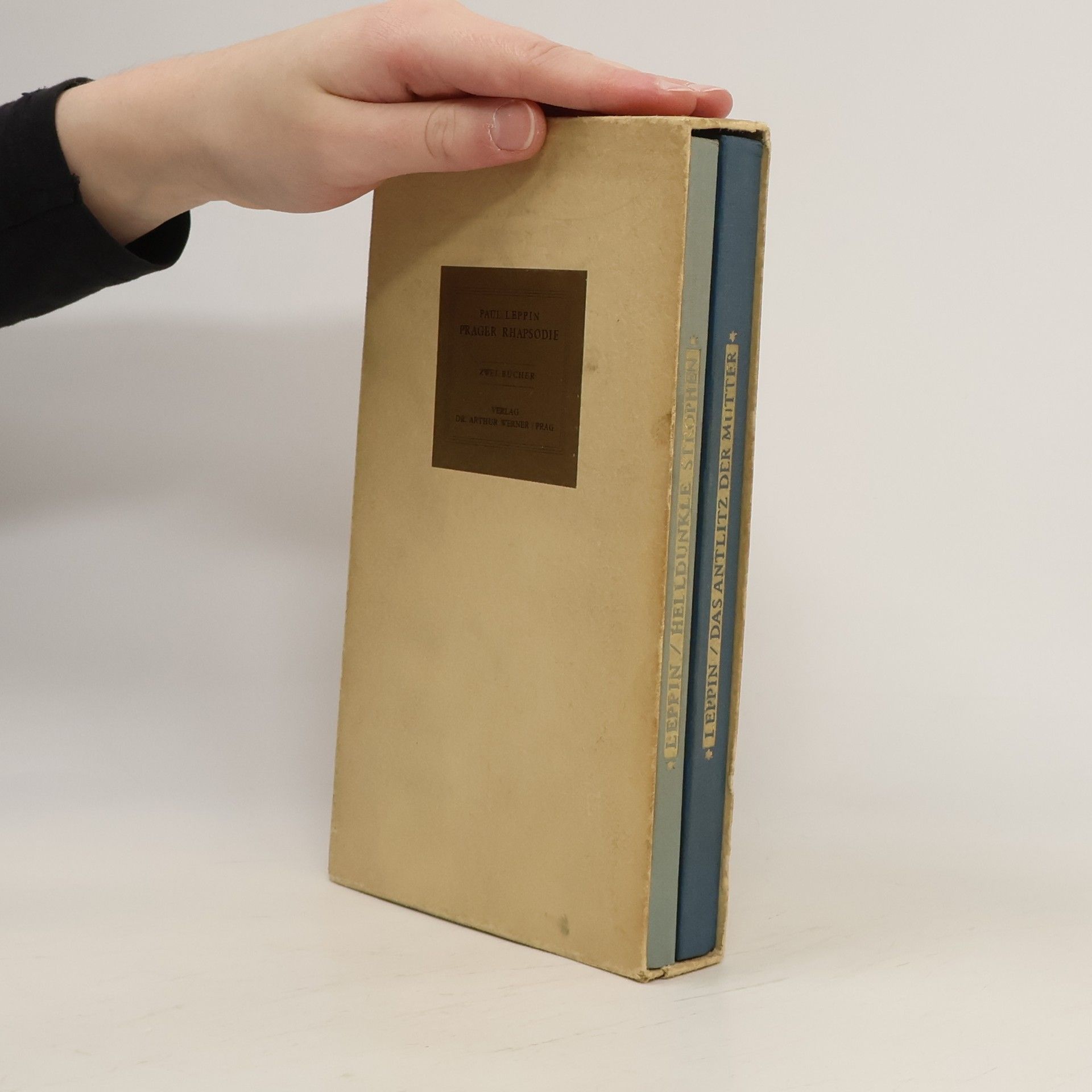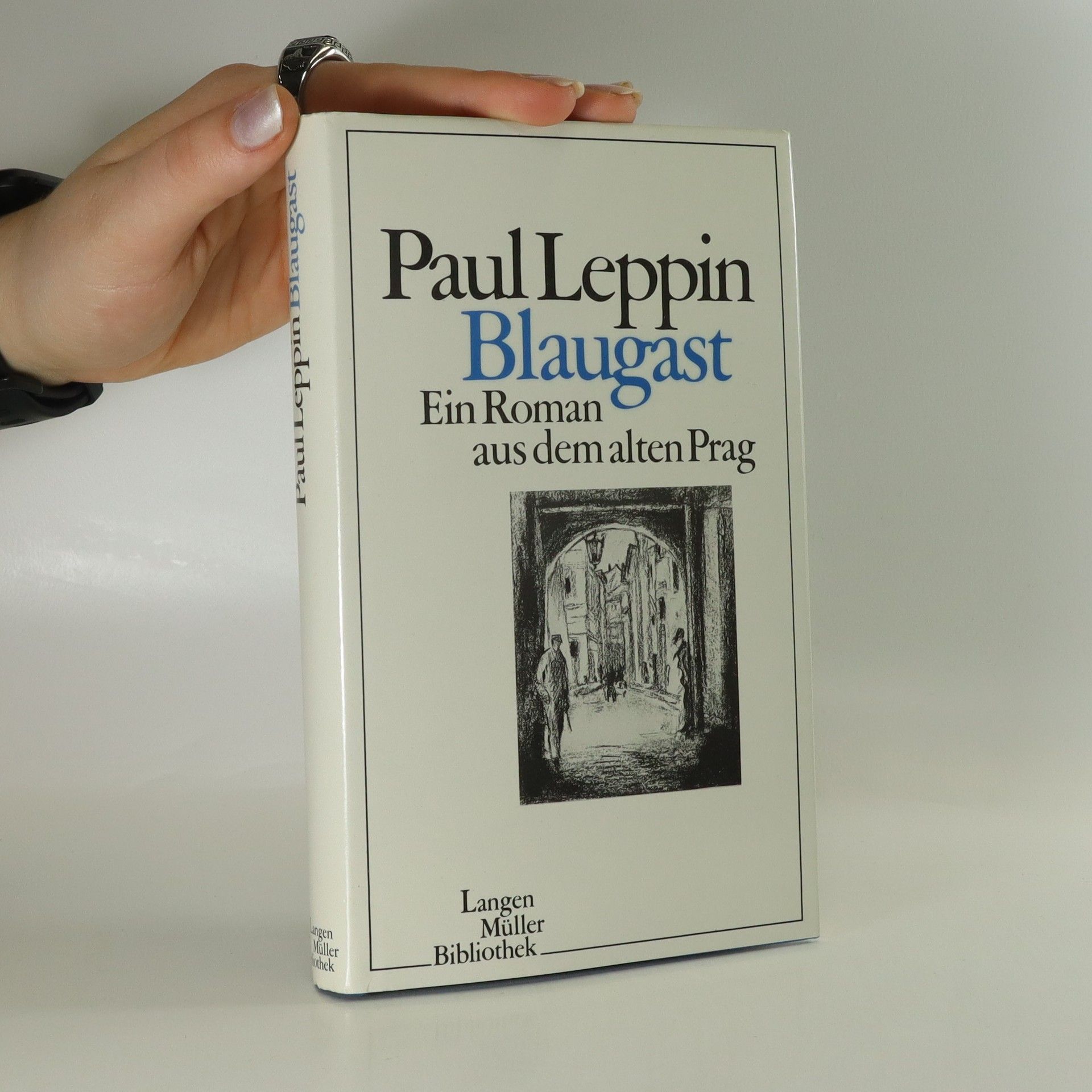Román, ve kterém všechny postavy podléhají zlu a neřesti, do níž je jako do propasti strháva Daniel Ježíš.
Paul Leppin Knihy







Severinova cesta do temnot
- 134 stránek
- 5 hodin čtení
Románem "Severins Gang in die Finsternis (Ein Prager Gespensterroman)" zahajuje Leppin pražským motivem tematiku reálného města, jež se pak bude opakovat ve většině jeho prózy a poezie. Jméno Severina, snílka a rozervance, je vypůjčeno od protagonisty románu "Venus im Pelz" Leopolda von Sacher-Masocha. V postavě Nikolause Leppin ztvárnil Gustava Meyrinka, se kterým se často stýkal. Proč "gespensterroman"? - Hlavní náplní tohoto nejznámějšího Leppinova díla je opět erotika, ale spolu s ní rozporuplné nálady duše, tajné záhady. Severin je hnán běsy, které má v sobě. Temnota, do níž putuje, není jen temnotou nočních ulic, je temnotou v něm samém: stavy bezmocnosti, neurčitých nálad a vědomí - pocity sžírající novoromantické duše v Praze.
Towards the end of his life Leppin Prague remains my deepest experience. Its conflict, its mystery, its rat-catchers beauty have ever provided my poetic efforts with new inspiration and meaning. Others Paradise represents one of the most intense expressions of this experience. Beginning with the highly imagistic The Doors of Life, the eight stories contained in this volume detail the contours of the lives and visions of a collection of Prague inhabitants, from a prostitute bound to the decay of the old Jewish quarter, to a man caught in the memory of a lost love, and a shoemaker whose knowledge of the world has been constricted to the view from the window of his cellar workroom. Amidst their differing circumstances what these characters share is an intense desire for lasting human contact and the fated disappointment of all such aspirations. Binding their personal histories, woven into their most intimate details, is Prague itself, the city whose nature, mythical and yet all-too-real, gives shape and force to their desires while simultaneously determining their frustrations.
Blaugast: A Novel of Decline
- 188 stránek
- 7 hodin čtení
Tato kniha byla vydána českým nakladatelstvím Twisted Spoon Press, které sídlí v Praze a vydává díla českých a slovanských autorů v anglickém jazyce. Oficiální anotace nakladatele: Are you interested in catastrophes? Blaugast is a tale of ruin. A bored clerk, Klaudius Blaugast, pursues his desires down a path spiraling into complete degradation. Homeless and destitute, having lost everything to the evil prostitute Wanda, he seeks redemption in a Prague that has become sybaritic and uncaring — a city in which he has become an outcast among the outcasts. Flashbacks to incidents in his past, hallucinatory revelations of the meaning of events long forgotten, point to the seeds of his eventual downfall. Leppin's final novel, which he never saw published (the typescript languished for decades after his death in the archives in Prague), Blaugast is an indictment of the despotic and vulgar, an exploration of the sadistic tendencies found amongst the “moral” and “respectable.” Max Brod's depiction of Leppin as “a poet of eternal disillusionment, at once a servant of the Devil and an adorer of the Madonna” nowhere rings more true than here. Translated from the German by Cynthia Klima. Afterword by Dierk O. Hoffmann.
Prager Rhapsodie
- 181 stránek
- 7 hodin čtení
In den Versen und Prosaskizzen des Dichters Paul Leppin (1878-1945) ist Prag Strich um Strich, Gestalt um Gestalt eingefangen. Er plaudert nachdenklich über alte Fotografien seiner Verwandten, führt in Weinstuben, träumt von silbernen Dachrinnen, erzählt Uhrmachergeschichten, philosophiert über das Altwerden, erinnert sich einer alltäglichen Hinterhaustragödie, berichtet von der Zusammenkunft ehemaliger Klassenkameraden. Es ist eines der schönsten unter den zum Abschied vom alten Prag geschriebenen Büchern.
Im historischen Roman wird das alte Prag lebendig, während die Geschichte eines jungen Mannes erzählt wird, der zwischen den Welten der Kunst und des Alltags pendelt. Die Protagonisten sind von der Atmosphäre der Stadt und ihren Geheimnissen geprägt, während sie sich mit Themen wie Identität, Liebe und dem Streben nach Sinn auseinandersetzen. Leppin verbindet eindrucksvoll die Schönheit und Melancholie Prags und schafft so ein faszinierendes Porträt einer vergangenen Epoche, das den Leser in seinen Bann zieht.
Im Roman geht es um die komplexe Figur des Daniel Jesus, der zwischen den Welten von Glauben und Zweifel, Liebe und Verlust pendelt. Die Handlung entfaltet sich in einem spannenden Spannungsfeld von religiösen und existenziellen Fragen. Leppin zeichnet ein eindringliches Porträt eines Suchenden, der sich mit seiner Identität und den Herausforderungen des Lebens auseinandersetzt. Die tiefgründigen Themen und die poetische Sprache laden den Leser ein, über die menschliche Existenz nachzudenken und sich mit den inneren Konflikten der Protagonisten zu identifizieren.



